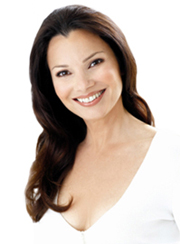What If Your Mom Had Cancer? | Should You Be Worried?
Written by Dr. Nalini Chilkov
If Your Mother Had Cancer, Are You At Risk? What is The Role of Family History? Should You Get Tested?
There is a link between mothers, daughters and cancer risk.Just because your mom had breast cancer does not mean that you will be struck with breast cancer as well. The causes of cancer are complex. Not only genetics, but lifestyle factors such a dietary, exercise and sleep habits as well as exposures to environmental cancer causing chemicals (including body care products and cosmetics) contribute to the development of cancer.Men get breast cancer too!! A man who has a close male relative (brother, father, uncle) with breast cancer can also be at increased risk for breast cancer too!!!Most cancers are not linked to just one gene.
However, there is a particularly aggressive and deadly form of breast cancer that is linked to inherited genetic characteristics that is associated with 5 ñ 10 % of all breast cancers. These genes are called BRCA-1 and BRCA-2 and there are excellent genetic tests available to determine if you have these mutations. With these genetic mutations you see a breast cancer family where most of the women suffer from virulent cancers that shorten their lives. BRCA genes are also associated with increased risk of colon cancer. This accounts for a small number of breast cancer patients, but if you are one of them, you want to know!!!
More common in cancer families are inefficiencies or anomalies in how hormones and environmental chemicals and detoxified and excreted from the body. Other characteristics that tip the balance towards a pro cancer physiology in a cancer prone person include high body fat due to obesity and overweight, diabetes and pre diabetes with higher levels of insulin and blood sugar, poorly managed use of hormone replacement therapy, high levels of inflammation, exposure to persistent organic pollutants that alter normal hormonal metabolism, abnormal sleep cycle and night shift work. Other factors include having children late in life or having few children or not nursing. (For women who have more children, nurse them and have them at a younger age, this represents a break from lifelong estrogen exposures.)
Here are the most important steps you can take now:
- Know your family history
-
Eat A Health Promoting, Low Glycemic, Anti-Inflammatory Diet | Fight Cancer in the Kitchen
- Reduce your exposure to environmental chemicals associated with increased cancer risk
-
Get Normal Sleep
- Exercise Regularly
-
If you use hormone replacement therapy, be sure you are managed closely and meticulously by an experience health care provider
- Limit your alcohol intake
-
Eat a primarily plant based diet filled with a rainbow of colorful plant pigments
- Know the signs and symptoms of cancer and donít ignore them
-
Get screenings for breast, cervical, uterine and colon cancer
- Do More! Read Cancer Control: 32 Steps You Can Take Now
-
To Learn How to Recognize Symptoms and Signs of Cancer: Read 16 Signs of Womenís Cancers: A Healthy Woman Checklist
- Learn How to Remove Cancer Causing Toxins From Your Home
-
Make sure your blood levels of Vitamin D are optimal
- Eat cabbage family vegetables regularly, especially brocolli and kale to get the benefit of protective sulphoraphanes
References
Collaborative Group on Hormonal Factors in Breast Cancer. Familial breast cancer: collaborative reanalysis of individual data from 52 epidemiological studies including 58,209 women with breast cancer and 101,986 women without the disease. Lancet. 358: 1389-99, 2001.
Pharoah PDP, Day NE, Duggy S, Easton DF, Ponder BAJ. Family history and the risk of breast cancer: a systematic review and meta-analysis. Int J Cancer. 71(5):800-9, 1997.
Willett WC, Tamimi RM, Hankinson SE, Hunter DJ, Colditz GA. Chapter 20: Nongenetic Factors in the Causation of Breast Cancer, in Harris JR, Lippman ME, Morrow M, Osborne CK. Diseases of the Breast, 4th edition, Lippincott Williams & Wilkins, 2010.
Anderson DE and Badzioch MD. Familial breast cancer risks. Effects of prostate and other cancers. Cancer. 72: 114-9, 1993.
Anderson DE and Badzioch MD. Familial effects of prostate and other cancers on lifetime breast cancer risk. Breast Cancer Res Treat. 28: 107-13, 1993.
Valeri A, Fournier G, Morin V, et al. Early onset and familial predisposition to prostate cancer significantly enhance the probability for breast cancer in first degree relatives. Int J Cancer. 86: 883-7, 2000.
Davis S, Mirick DK, Stevens RG. Night shift work, light at night, and risk of breast cancer. J Natl Cancer Inst. 93(20):1557-62, 2001.
----------------
Click here for more empowering info from Dr. Nalini
-----
Dr. Nalini Chilkov, L.Ac., O.M.D. is a leading edge authority in the field of Integrative Cancer Care, Cancer Prevention and Immune Enhancement. She is the Founder of IntegrativeCancerAnswers.com where she offers online programs and resources that empower and transform. Dr. Chilkov brings over 30 years of clinical experience combining the best of Modern Functional Medicine with the ancient wisdom of Traditional Oriental and Natural Healing. She is a highly respected expert in her field, a frequent speaker at conferences, educational institutions and a trusted resource to the media.





















